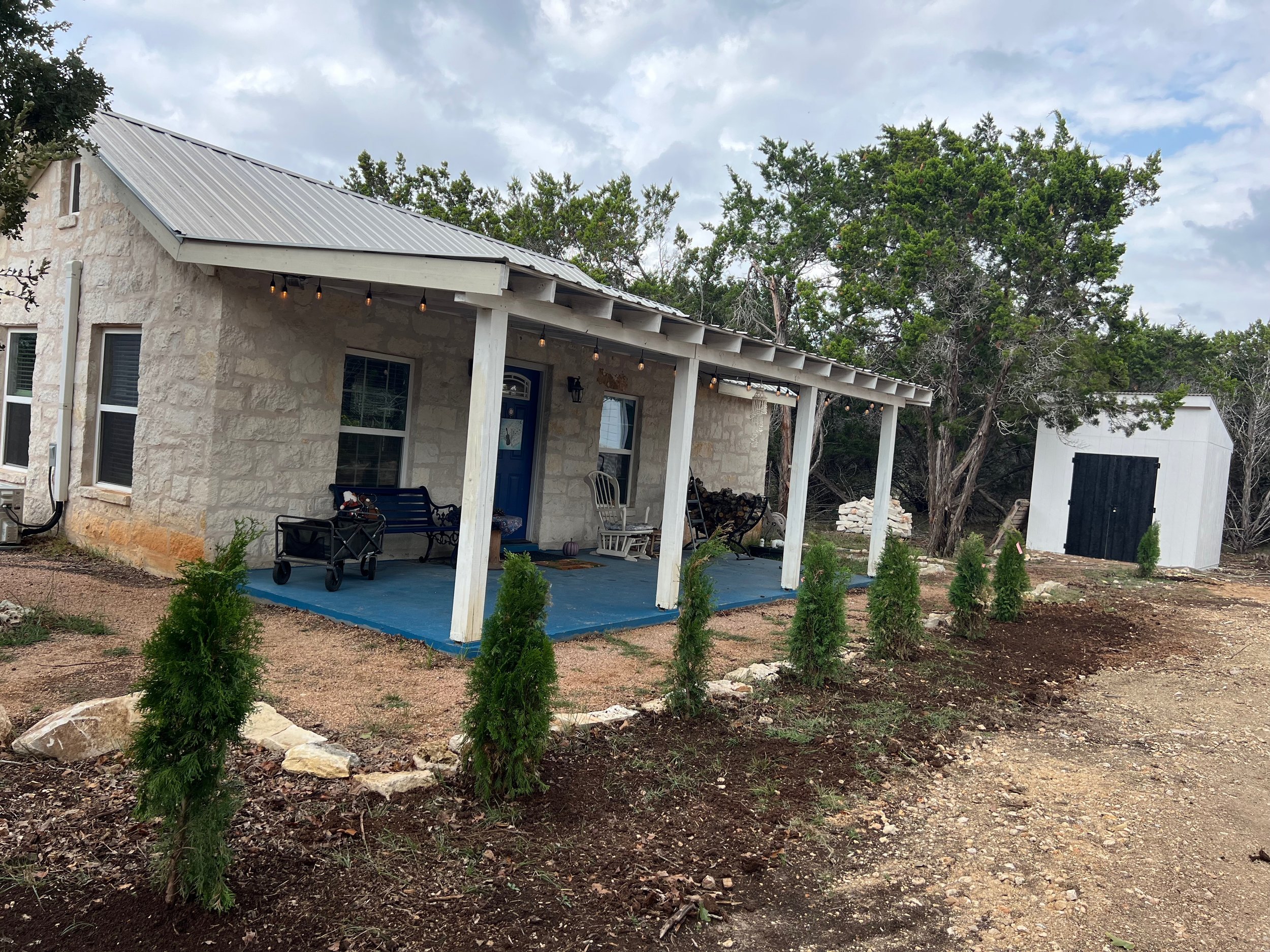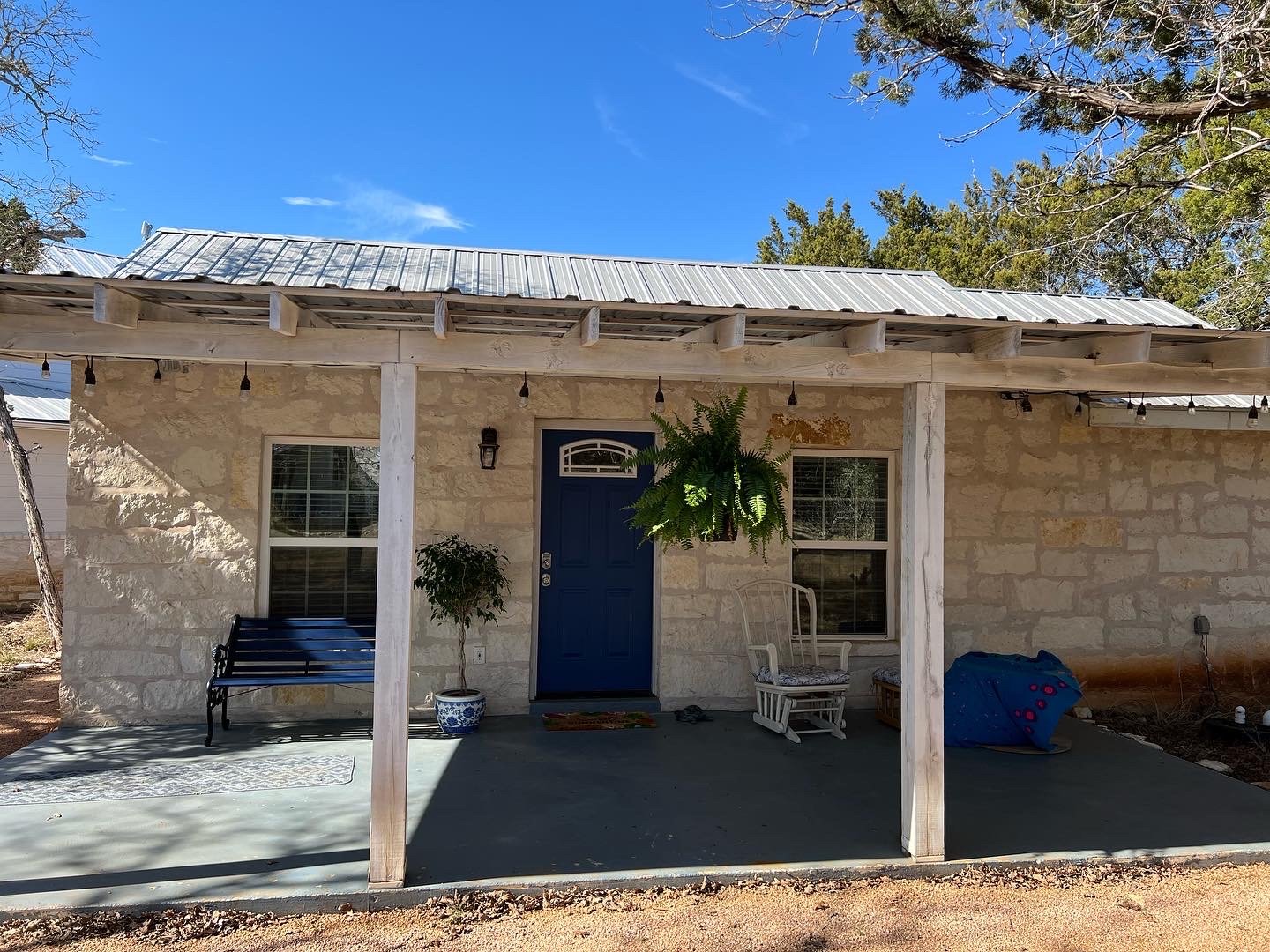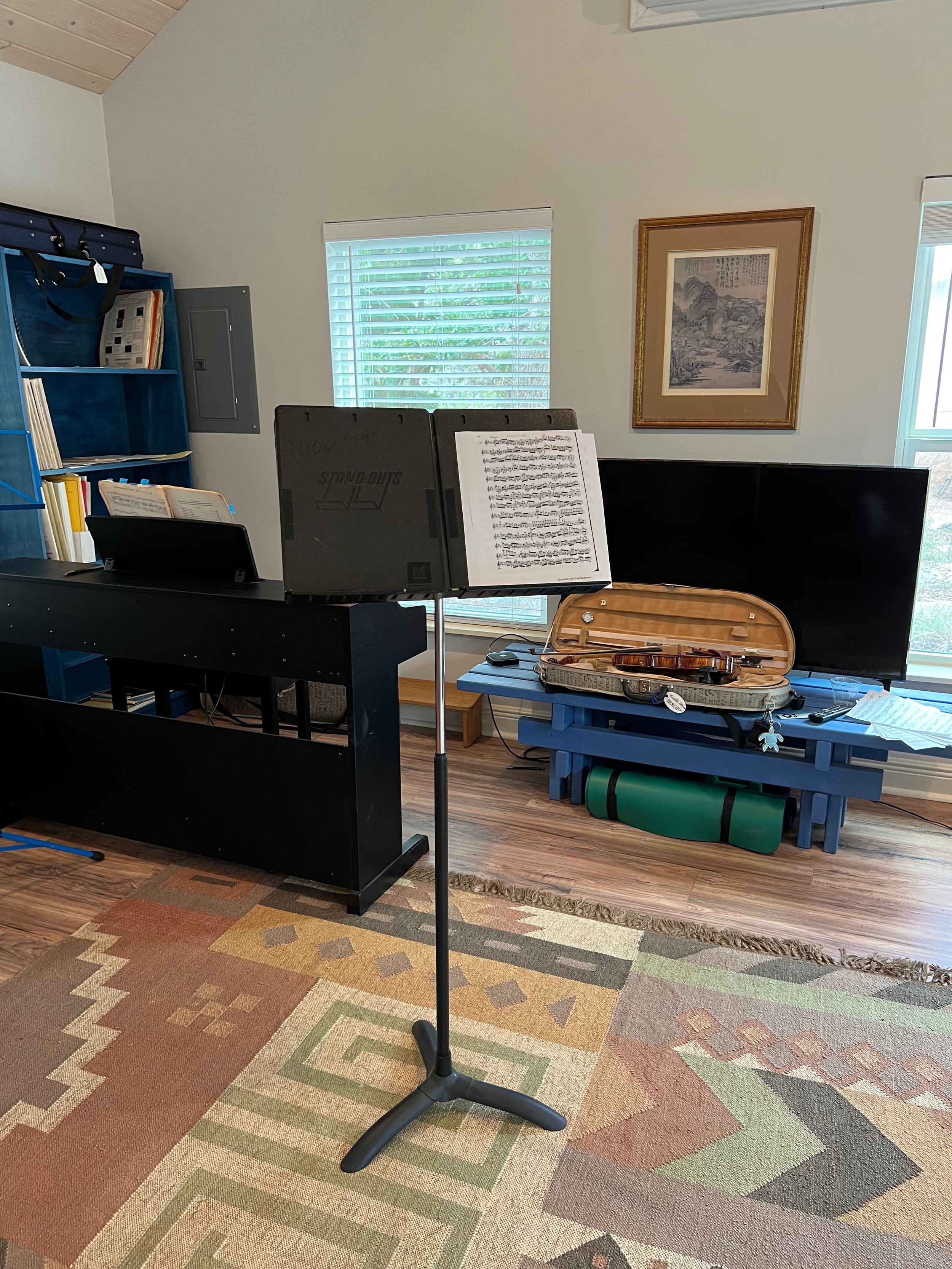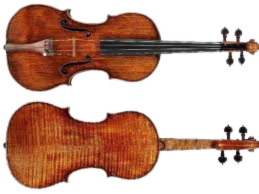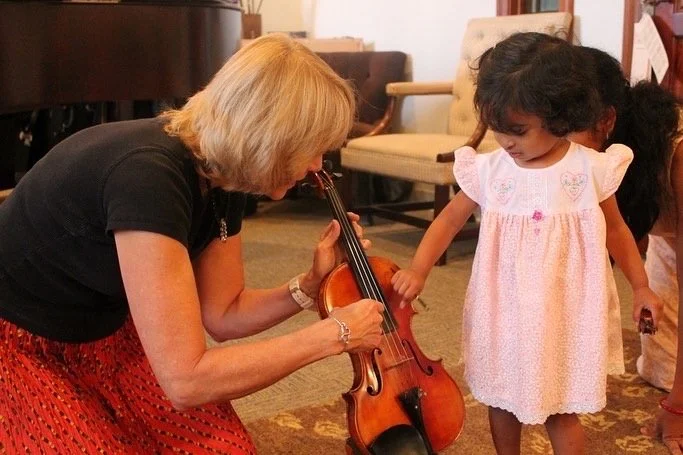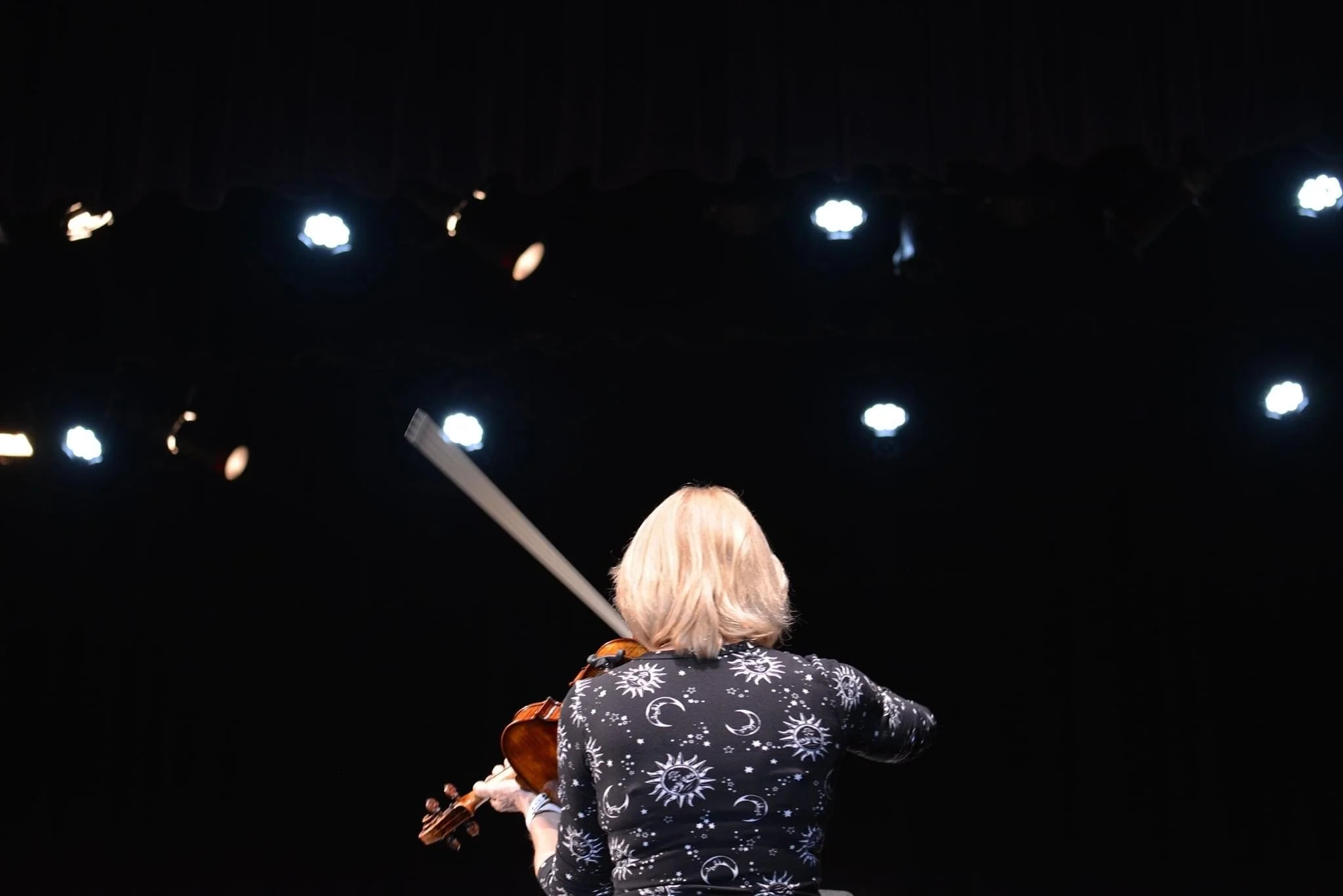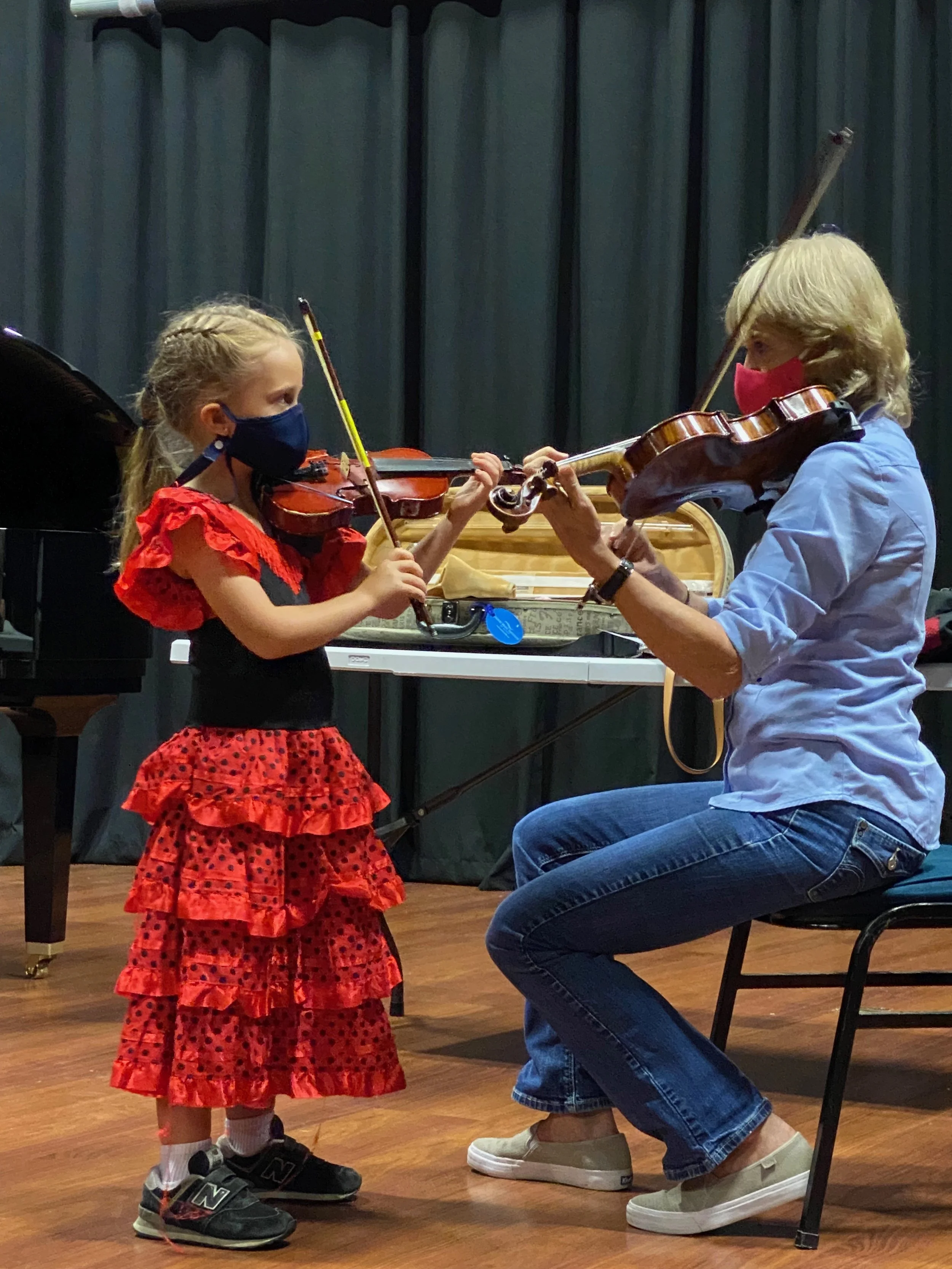Monticello Talent Education School of Music
Where Fun and Discipline Meet!
Dripping Springs, TX
Testimonials
About Nicolette
Nicolette Solomon is the Director of the Monticello Talent Education School of Music. She was the Executive Director and President of the Suzuki Music Institute of Dallas for 20 years and has taught violin, viola, chamber music and conducted string orchestras for over 40 years.
Ms. Solomon was born in Laingsburg, South Africa to musician parents. She began her violin studies with Neil McKay, followed by Pierre de Groote at the College of Music in Cape Town and her University studies under the tutelage of Alan Solomon. In 1975 she played at the International Festival of Youth Orchestras in Scotland and has twice toured Europe as well as and performed in Israel, Taiwan and Hong Kong with Harmonia Juventia. She studied Chamber Music from 1974 – 1981 with Betty Pack and Alan Solomon. She has also been an Adjudicator/Examiner for music competitions and examinations in South Africa and the USA. Ms. Solomon founded and directed the Solomon Suzuki School in Johannesburg, South Africa, which was the first Suzuki Music School in Africa.
Nicolette Solomon obtained a Bachelor of Music (Honors) and Higher Education Diploma (Post Graduate) at University of the Witwatersrand in Johannesburg, South Africa. Her violin pedagogy training continued with Christophe Bossuat at the Ecole Suzuki in Lyon, France, and had masterclasses with Tibor Varga. Nicolette studied with Dr. Shinichi Suzuki at the Talent Education Research Institute in Matsumoto, Japan in 1992. During that time, she taught at a private studio in Nagano City, Japan and at Shinshu University.
In 1994, Ms. Solomon attended the International Strings workshop in France, playing in the Eduard Melckus Baroque Ensemble. She has taught at workshops and Institutes in South Africa, Ireland, New Zealand and throughout the USA and Central America. Her studio in Dripping Springs comprises of violinists and violists ranging from 4 year old beginners to College level students. She is married to Carl van Wyk, has 2 adult children and two grandchildren, Leonardo and Julia. She loves gardening, architecture, hiking, film, reading, art, food and wines.
About my teaching
Where fun and discipline meet.
I was trained in the traditional European/Russian violin schools and have incorporated and embraced the philosophies and methods of the Suzuki Method.
4 year old beginners to College level students.
Ms Solomon has had students graduate from the Juilliard, New England Conservatory, Oberlin, Vanderbilt, Curtis, Georgetown, the Royal College of Music, Rice University, and many other prestigious colleges.
-
Dr. Shinichi Suzuki, the founder of one of the most successful violin pedagogy methods in the world, believed that every child can be educated and that every child has the potential to reach a high level of skill. Daily practicing and listening are the keys to a child’s musical success.
-
The “Mother Tongue” approach is based on Dr. Suzuki’s belief that all children can learn when given the opportunity. Every child is expected to speak whatever language they are hearing. Children are lovingly and patiently taught their native language by absorbing what they hear around them. They repeat the sounds they hear as they slowly and constantly build their own vocabulary. Listening, imitation, and repetition are also the key building blocks in learning to play an instrument. Repetition of a skill also builds a carpet of myelin in the brain, which is a sheath that forms around the nerves of the brain and spinal cord. This myelin sheath allows electrical impulses to transmit information quickly and efficiently along the nerve cells.
-
We are never too old to learn, but it is more natural and more effective when the child gets an early start. A three-year-old child can begin their instrument specific music education via the Suzuki Method. As soon as the violin/viola student has good technical fundamentals secured, we embark on an exciting path of note reading from beginning to advanced etudes and orchestral scores.
-
The involved parent is the “practice partner” at home. The parent attends every lesson, takes notes on assignments, and directs home practice with the teacher’s guidance and supervision. The teacher has great trust in the parent as the teacher guides the parent through every step. The parent does not have to know anything about music as I, the teacher, will guide you through every step. It’s fun and gratifying.
-
Students listen to their current pieces daily and repeatedly, just as they do when learning a language. They listen to familiarize themselves with what they will be learning, then model to build and maintain their skill base.
-
Students constantly review and refine the pieces that they have learned. This in turn strengthens memory, solidifies technique, and develops musical expression.
-
Each skill and piece of music is broken down into the most basic units, which are carefully mastered before continuing. This insures a child’s ease of playing and ultimate success in performance.
-
Enjoyment is an important part of the learning process. The teacher and parent praise the child’s progress. They find supportive and creative ways to work towards further improvement. This is where fun and discipline meet.
-
Tuition reserves your weekly lesson time which is is reserved exclusively for you. When a student knows in advance that they will not be able to make his or her lesson, the student may trade lessons with another student of the same or shorter lesson, providing that the teacher is made aware of the trade.
For last-minute (less that 24 hours in advance) cancellations and rescheduling or no-shows, I am not able to offer makeup lessons and the lesson will unfortunately be forfeited.
To benefit fully from your allotted time, please arrive promptly, unpack and be ready to begin.
Bring all your music as well as a notebook to write down your weekly assignments.
I expect a healthy work ethic, with good and consistent practice habits, which I will nurture, and which I expect parents to nurture at home.
-
The responsibility of the child’s progress lies with the parents and the teacher. They work together to nurture ability. They are the base that hold up the child at the top of this triangle. They not only instill a good music education, they work together to develop good habits, discipline, following complex instruction and time management through daily practice.
Tuition Fees
Fees are payable 4 lessons in advance. Payments work in 4 lesson units, not months. I accept VENMO (@Nicolette-VanWyk) or checks made out to Nicolette Solomon.
TINY BEGINNERS: Minumum 2 per class. $150 per 4 week unit.
30-minutes per week
$50 per 30 minutes per week = $200 per 4 week unit
45-minutes per week
$75 - 45 minutes per week = $ 300 per 4 week unit
60-minutes per week
$100 - 60 minutes per week = $400 per 4 week unit
